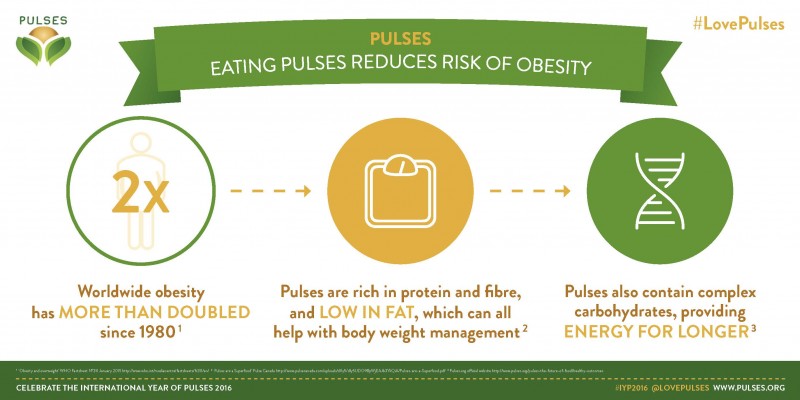Two new reviews demonstrate the health benefits of eating one serving per day or more of beans, peas, chickpeas or lentils.
One study, in the Canadian Medical Association Journal, suggests eating a handful of pulses every day (circa 130g), can reduce ‘bad’ or LDL cholesterol by five percent thereby lowering the risk of heart disease.
Lead author, Dr John Sievenpiper of the University of Toronto and St Michael's Hospital's, said: ‘We hope that the public and clinicians treating patients will recognise dietary pulses as a potentially important way of lowering bad cholesterol and improving cardiovascular risk’.
The other study, in the leading academic journal Obesity, found people who ate around 160 grams of pulses every day felt 31% fuller than those who did not. In the long term, this may result in weight loss, as feeling satiated after eating may help you avoid snacking between meals.
Dr Sievenpiper said ‘Most diets fail due to an inability to sustain reductions in food intake. By making dietary pulses – beans, peas, chickpeas and lentils – part of your daily diet, you will benefit from their low glycaemic index which may keep one feeling fuller for longer.’ He continued: ‘Regarding the satiety benefits, these findings support longer-term trials that have shown a weight loss benefit of dietary pulses. People have a lot of room in their diets for increasing their pulse intake.’
Pulses are the edible seeds of plants in the legume family, and include dried beans, chickpeas, peas, lentils, and faba beans. As a high fibre, low fat source of protein that contains important vitamins and minerals, pulses can reduce the risk of some chronic disease and improve human health. Pulses are also often used in weight management and weight-loss programs.
If you want to know more about how to cook pulses try our recipe bank.

